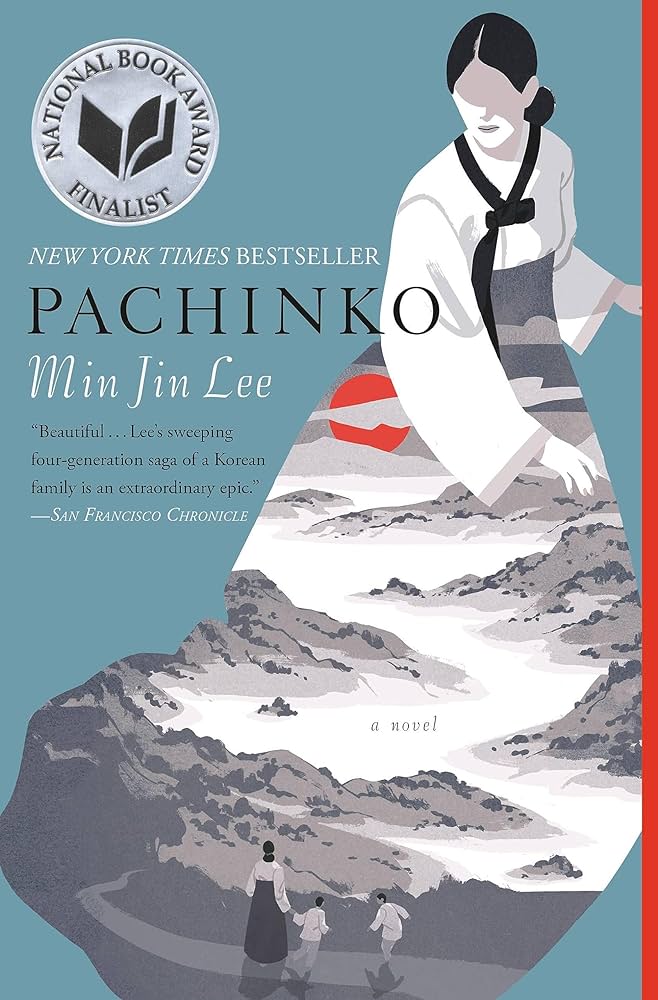Welcome back all! One of the first books I read this year was Pachinko by Min Jin Lee. Pachinko is a historical fiction novel that tells the touching and resilient story of four generations of a Korean family through the 1900s, as they navigate World War II, Japan, and the life that comes after it.
While reading this book, I often found myself staying up late, and telling myself that I would read just one more chapter before going to sleep. It is extremely touching and immersive. Before reading this book, I had a little bit of background knowledge on the treatment of Koreans in Japan during WWII, but reading it as an individual perspective was a very different experience. Imperial Japan believed that they were the superior race, and thus treated the rest of the world as if inferior. Although the looming issue is the treatment of the family, there were other social issues discussed as well. These include sexism, classism, and racism.
Although I enjoyed the book, I felt that the last part of the book felt a little bit rushed and disjointed from the rest of it. The other parts of the book generally focused on one main perspective, however the last part jumped between multiple characters. The ending was also sudden – I felt as if there was still more to be told, but it was the end of the book. I like how it ended on a hopeful note, which felt freeing for Sunja, one of the main characters, considering all that she had gone through in the book.
I’ve seen some reviews online saying that the writing style could feel abrupt and disconnected, however I found it appropriate for the book. It represents how grief ebbs over time, or that life-changing events could happen in an instant. I will admit that this was a lengthier read, with the page count close to 500, but it didn’t feel dragged out. In general, the pacing was good.
Going into the book, I was confused as to why it was called Pachinko, however as I read onwards, it made more sense. Pachinko, to those who may not be familiar with it, is a type of arcade game that is commonly used for gambling. The book’s title refers to how life itself is a gamble, and it will favour some over others. It also makes reference to how running a pachinko parlour wasn’t considered a respectable job, and was associated with the Japanese Yakuza. Due to its reputation, Koreans often found themselves working there.
Overall, I really enjoyed this book, and would recommend it to those who enjoy historical fiction. However before picking up this book yourself, I’d also highly ask readers to look for the content/trigger warnings.
